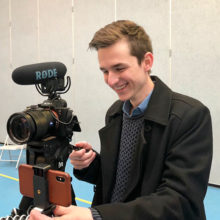Many people insist robots are coming to take our jobs. Some studies suggest artificial intelligence will create more jobs than it destroys.
No one knows exactly what the future will bring, but we can all agree on something: the field of automation is growing, and it’s growing fast. If anyone has job security, it will be those directly responsible for programming and automating the robots that will change our lives. Imagine my surprise when the first group of students I saw at Johnston Community College was doing just that.
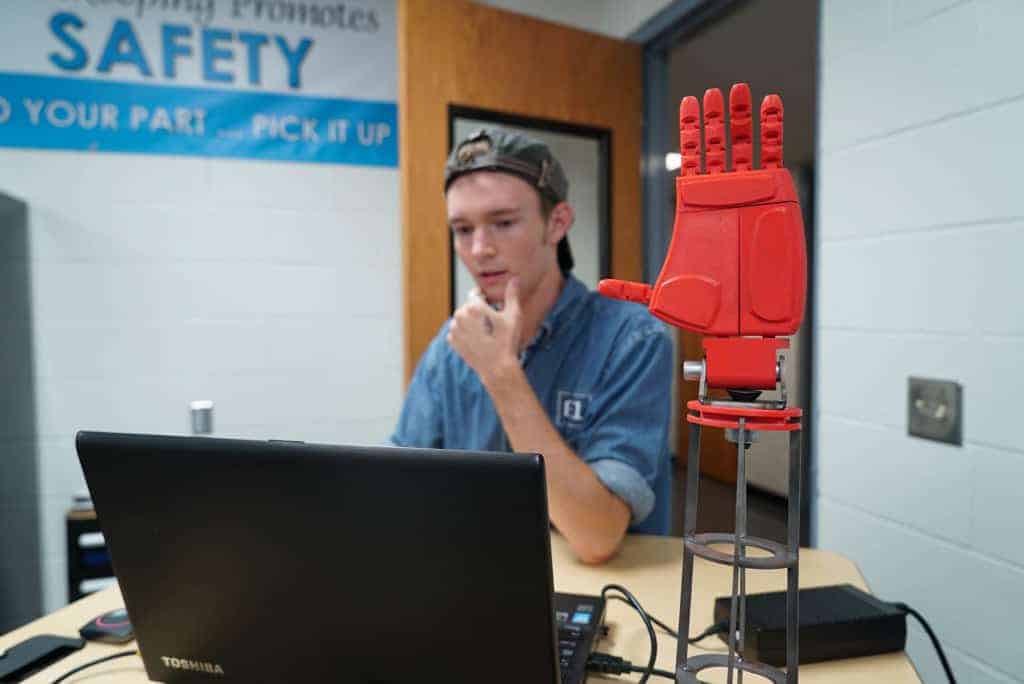

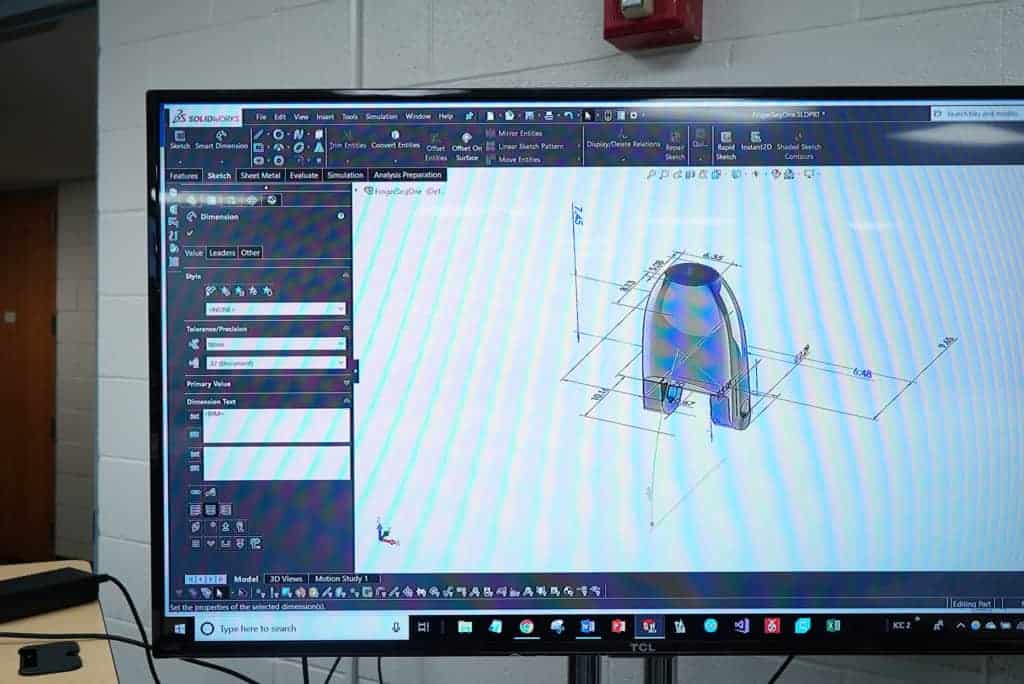

These students are enrolled in the college’s Associate in Engineering program. Several student groups were showing off their recently-built Rube Goldberg machines. The goal of the project was to achieve something relatively simple — popping a balloon — with a complex set of interconnected parts and steps that are fully automated after the first step begins.
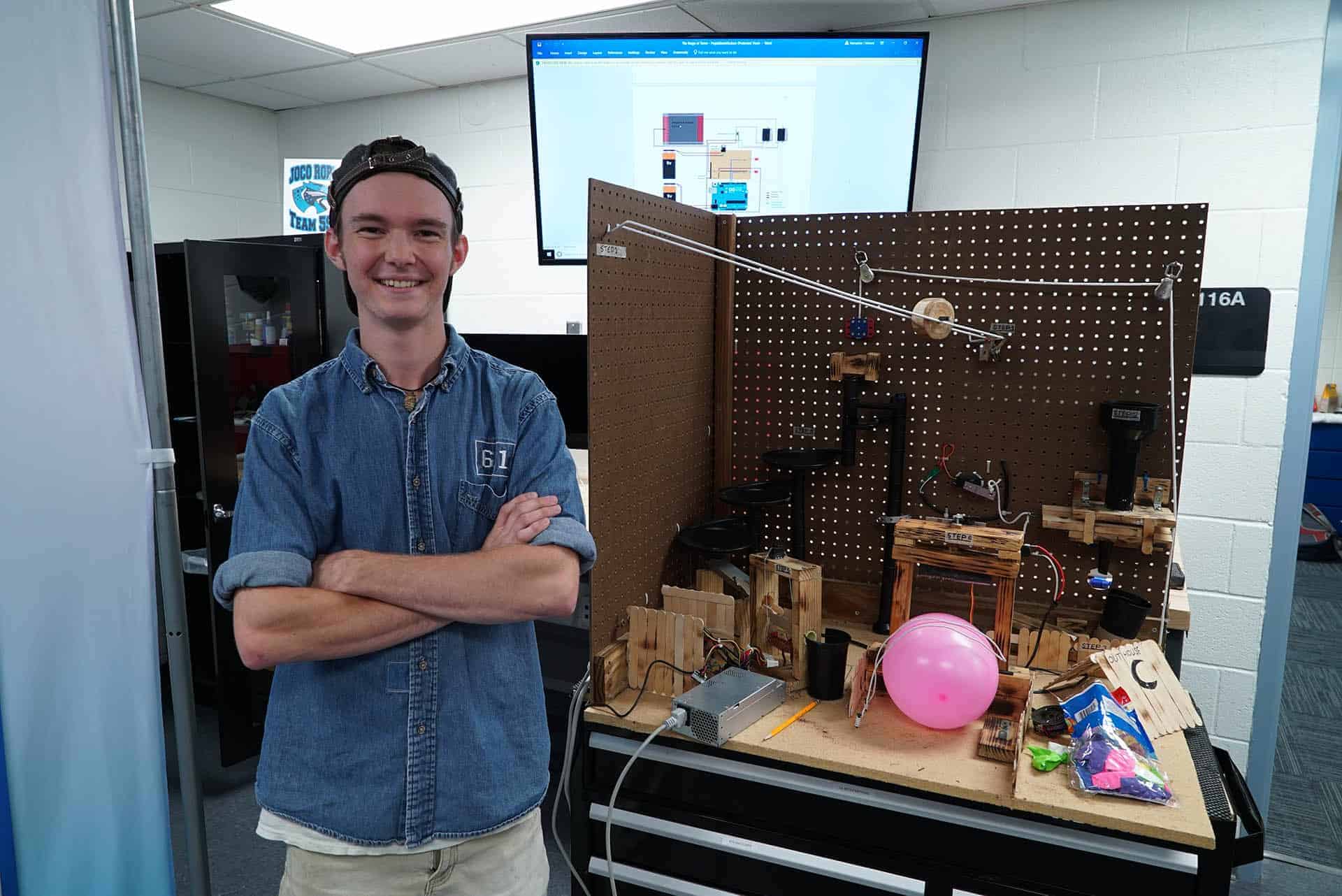

Another student demonstrated a climbing robot he helped design for the JoCo Robos, a high school robotics team hosted by the engineering department at JCC. This robot’s wheels allow it to move in any direction to position itself under a bar; it can then extend a grappling arm into the air that locks onto the bar, which it then retracts to hoist itself skyward.
Jared Glover is enrolled at @JCC_NC for an associate degree in engineering – here's a robot he helped design for the Joco Robotics team #Awake58 pic.twitter.com/ZQa9AWWTyG
— Robert Kinlaw (@rob3rtk) August 27, 2018
From saws and drilling tools to 3D printers, CAD software and Arduino chips, the program is outfitted with all the gadgets needed to unlock student creativity. Students leave ready to enroll in a bachelor’s degree in engineering. NC State and Western Carolina are two of the most common choices for engineers to continue their studies after leaving JCC.
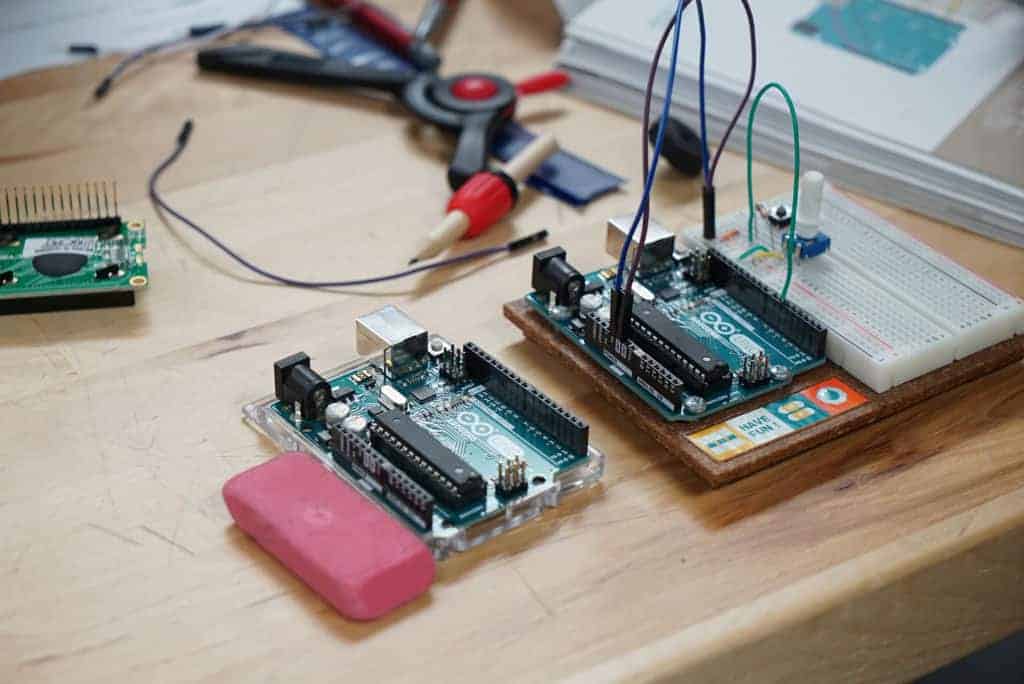

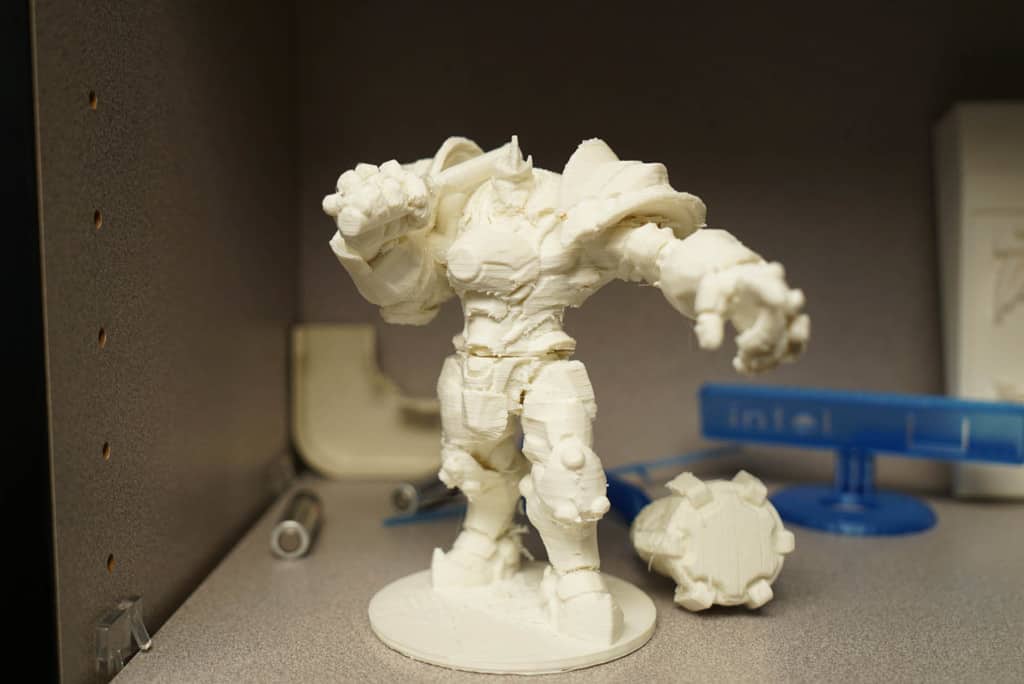

Students in the engineering program aren’t the only ones planning to transfer after two years. JCC’s highest enrolled programs are Associate in Science and Associate in Arts, both aimed at college transfer students who plan to continue their education at nearby universities.
With the increase in university tuition in recent years, students have good financial incentive to take advantage of transfer programs like JCC’s. The college estimates in-state students pay about $2,657 annually in tuition and fees. At a university, you’re lucky if that covers your meal plan for one semester.
College transfer programs offer full credit to students who transfer to in-state universities thanks to the comprehensive articulation agreement (CAA) in North Carolina. The most popular universities for JCC transfer students are ECU, NC State, UNC-Wilmington, Mount Olive, and UNC-Greensboro. When a student transfers from a community college and completes two more years at one of these schools, they receive an identical bachelor’s degree to one earned by a student who spent four years there.
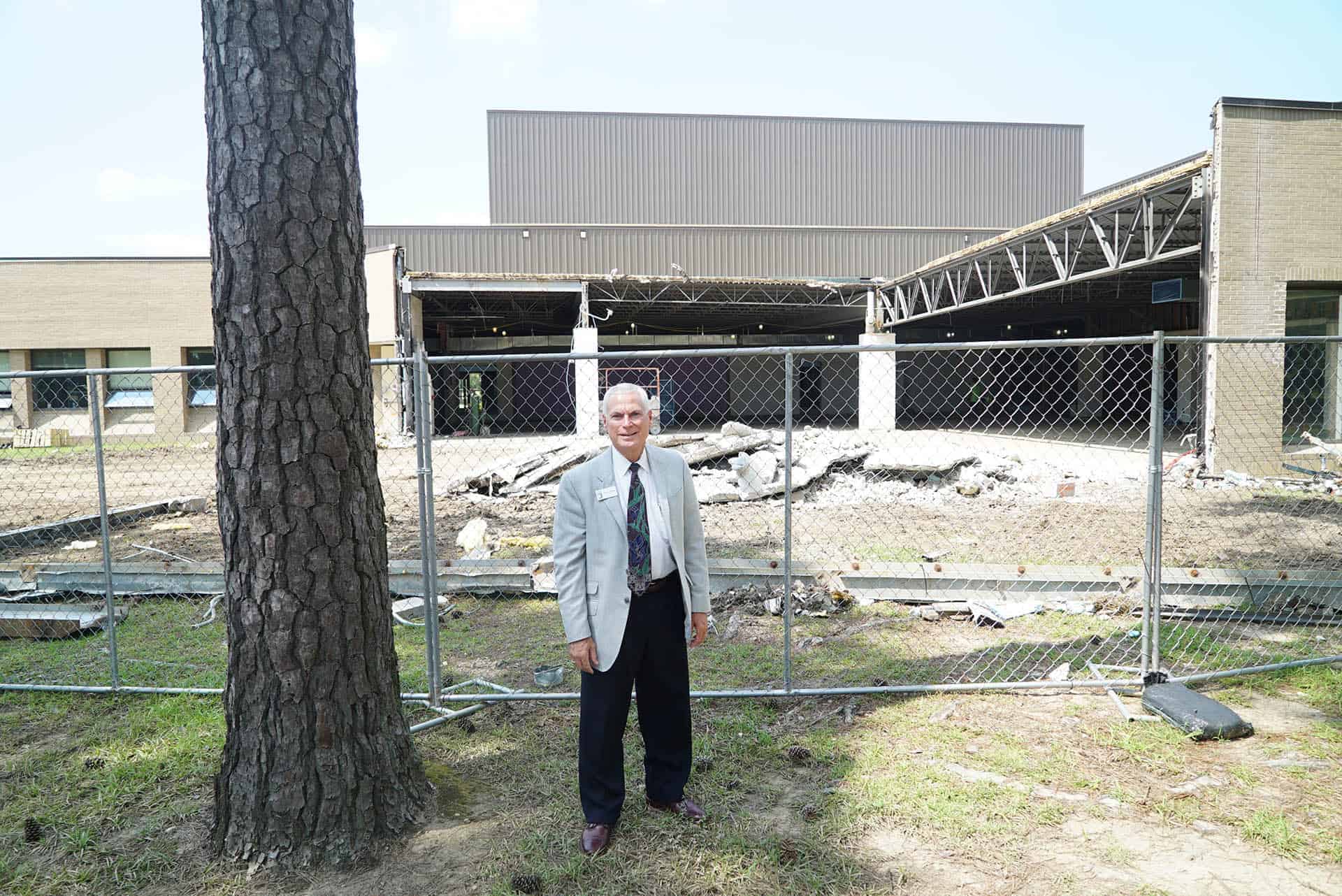

The two pathways ultimately lead to the same place academically, but it can be challenging for community colleges to provide student life experiences that rival those at universities. Johnston Community College is enriching its own campus opportunities by building a new Student Success Center in a former library space.
And while JCC has become very popular among college transfer students, it still creates technically skilled employees ready to enter the local workforce. The Student Success Center will be for all students, whether on the college transfer track or enrolled in career and technical courses. President David Johnson said an important part of his work at the college has been uniting these two sectors of students, sometimes literally into the same facilities.
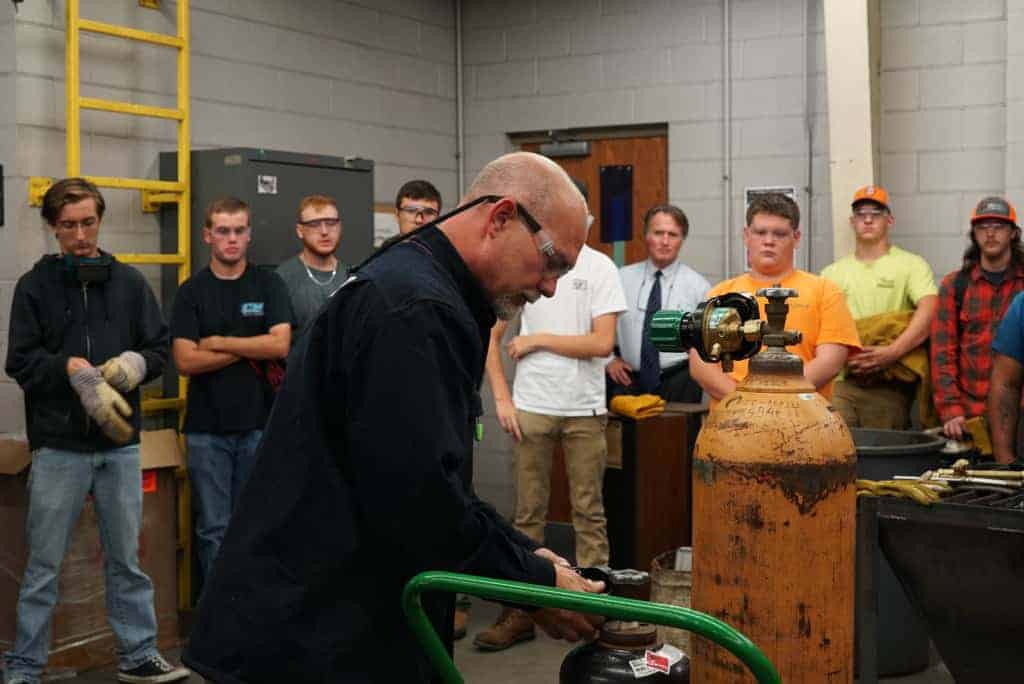

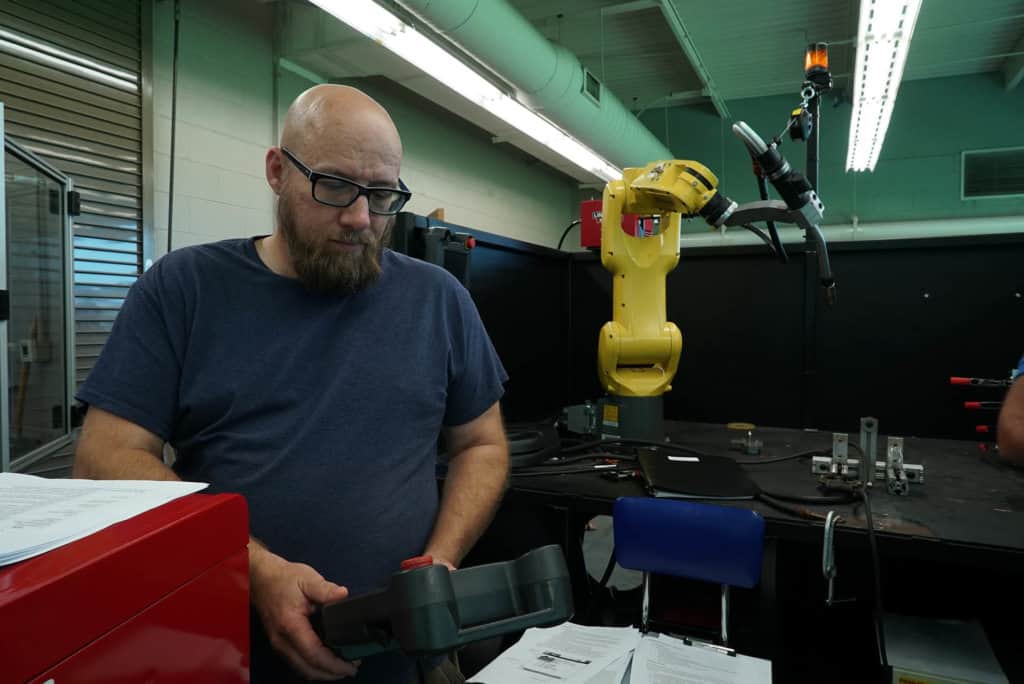

In the college’s welding department, students are taught the torch-in-hand skills that would traditionally be expected of a welder. But they’re also taught how to program robotic welding arms. These machines are already used widely by companies for repetitive welds, freeing up employees for more complex tasks. For now, a human still has to program and troubleshoot the robot itself.
Along with welding, you’ll find many other mainstay community college programs at JCC. Nursing is one of the larger ones. The college claims its nursing graduates have had a 99 percent pass rate on the NCLEX, a licensing test taken by nurses nationwide, for the past three years. The college has dedicated facilities for training law enforcement officers and firefighters, cosmetologists, HVAC specialists, and more.
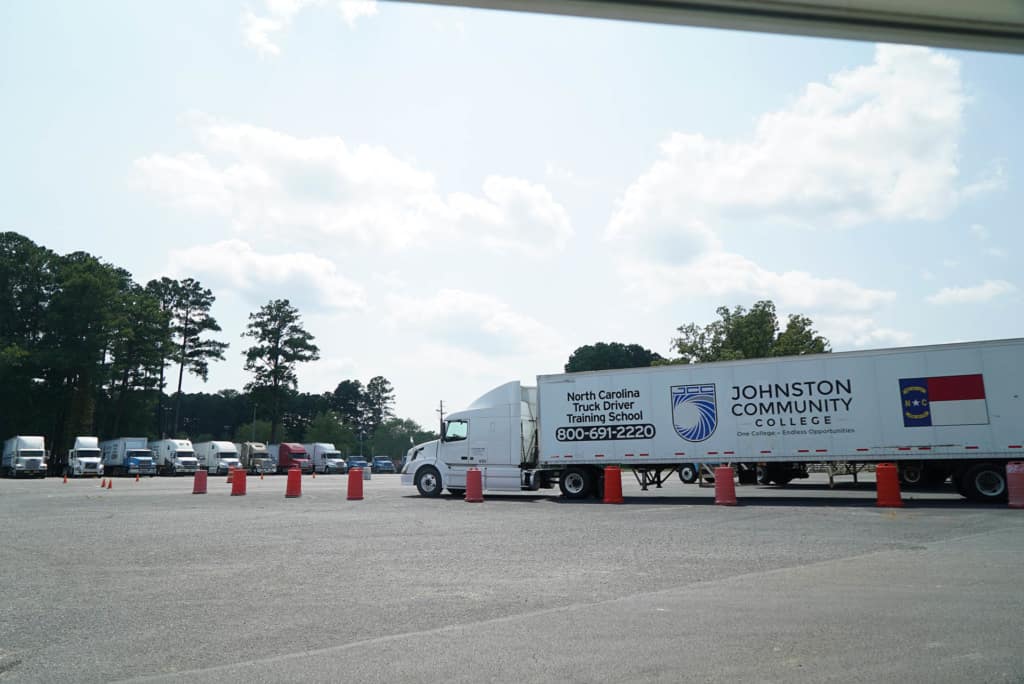

JCC recently expanded its offerings by constructing a new workforce development center a few miles away from its main campus. The building is loaded with high-tech medical equipment that prepares students for work with various companies in the region.
Susan Kaple, a biotechnology career specialist, helps connect students with workforce opportunities.
“We start out doing a personality assessment,” she said. “From there we help with resumes, interview skills, and we get them on LinkedIn.”
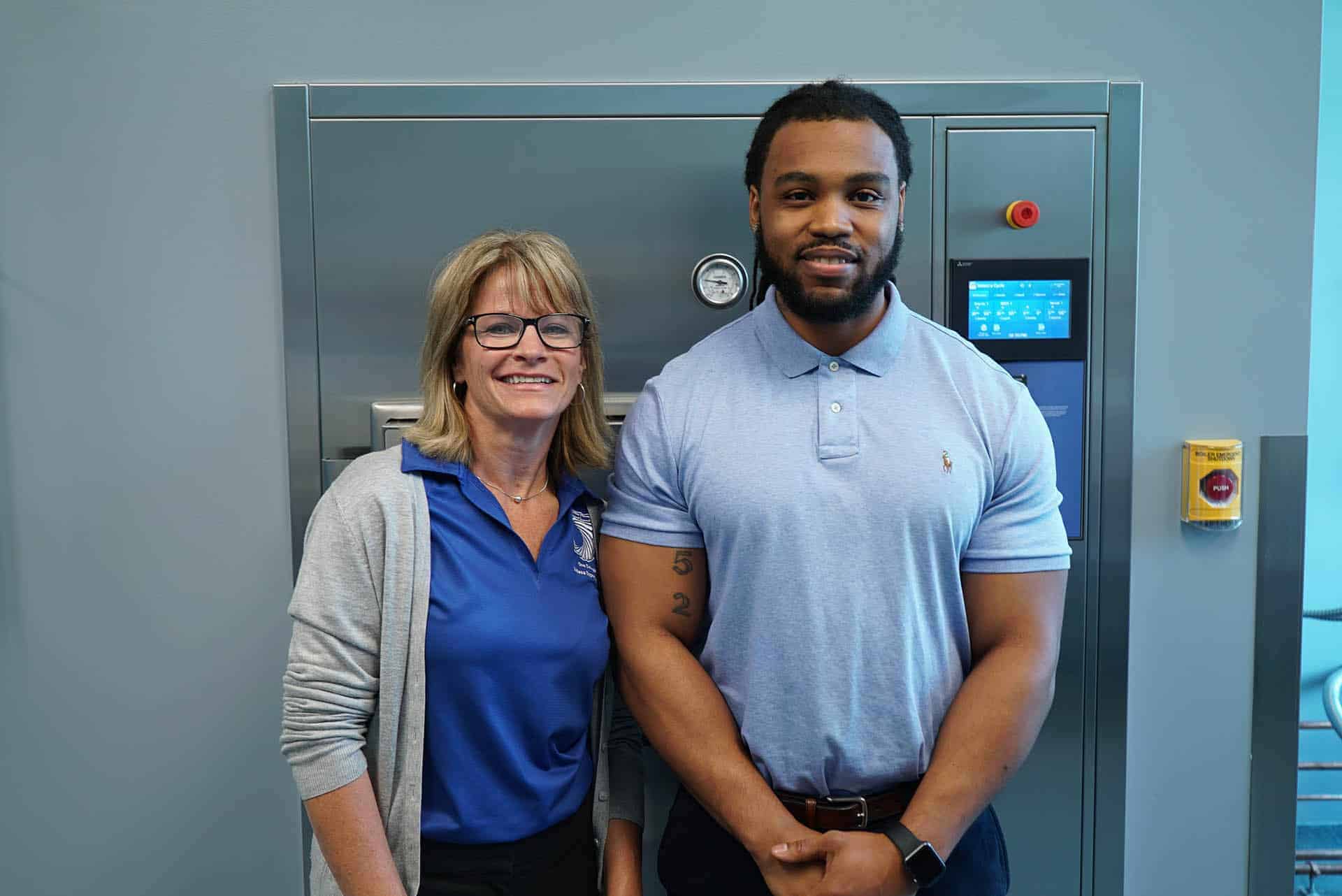

Jabari Sessoms is a JCC student who recently secured a job at Grifols. Grifols manufactures products for the medical industry with a special focus on researching and working with blood plasma. He had the skills he needed to get the job, but the college helped him use those skills effectively.
“It was very helpful,” Sessoms said. “[Kaple] actually makes you aware of your weaknesses and makes them into strengths. She allows you to strengthen your resume so you’re confident and have the key skills to present to those employers.”
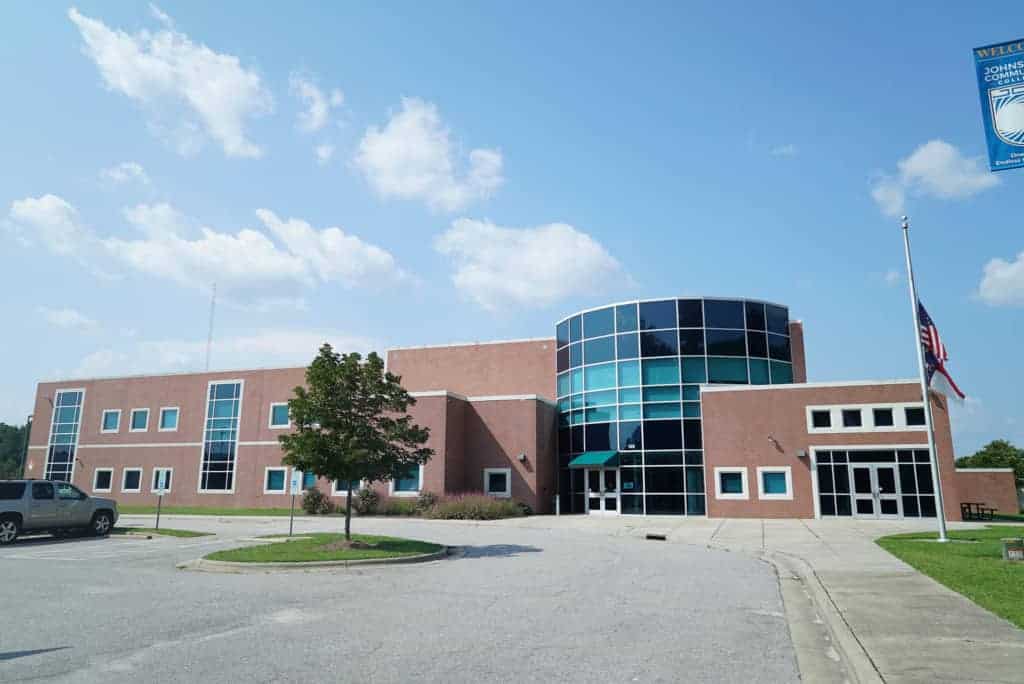

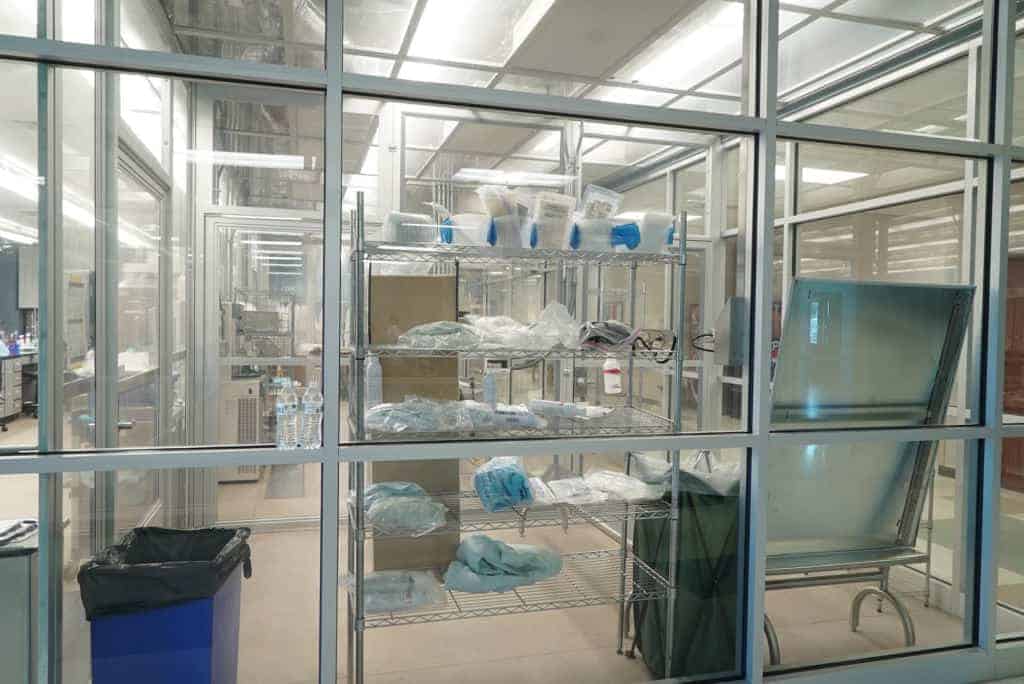

No one knows what exactly the future will hold for businesses, institutions, and everyday people. But community colleges have the ability to be particularly nimble in adapting to changes in the economy. Smart decision making has helped Johnston Community College adapt to changing workforce needs, and the college seems well-prepared to continue that no matter what tomorrow looks like.

